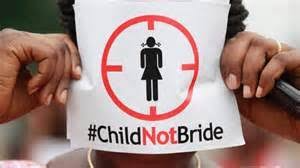By Ellen Samura
Sierra Leone has taken a significant step to end child marriage, a practice that affects 800,000 girls in the country, with half of them married before the age of 15. A 2019 UNFPA-UNICEF Global Programme to End Child Marriage report highlighted the severity of the issue, which is mainly fueled by gender inequality, traditional and social norms, particularly in Koinadugu, Tonkolili, Port Loko, Kambia, Falaba, and Pujehun.
Child marriage has devastating consequences for children, including curtailed education, lost childhood, and health risks. According to the United Nations, efforts to eradicate child marriage by 2030 have been hampered by the COVID-19 pandemic, and without intervention, the number of child brides could more than double.
A 2023 UNICEF report estimates that 640 million girls and women alive today were married in childhood, with 20% residing in sub-Saharan Africa. And the Global Girlhood Report estimates that an additional 2.5 million girls globally could be married by 2025.
In response to these alarming trends, Sierra Leone’s parliament has passed the Prohibition on Child Marriage Act, criminalising all forms of child marriage nationwide and ending a practice that has persisted for decades. The law imposes stiff penalties, including fines of at least NLe50,000 and jail terms of up to 15 years. It protects children from being married before 18 and safeguards victims of child marriage.
The Act not only prohibits child marriage but also criminalises consenting to the practice, using force or ill-treatment, officiating, promoting, aiding or abetting it. Attending a child marriage ceremony is also a criminal offense under Section 7 of the Act.
Additionally, the law allows victims or their parents to seek nullification of child marriages contracted before the enactment of the law and provides compensation for victims and children born within such marriages.
The new law has garnered widespread commendation, particularly from campaigners and rights groups who applaud its alignment with international best practice.



